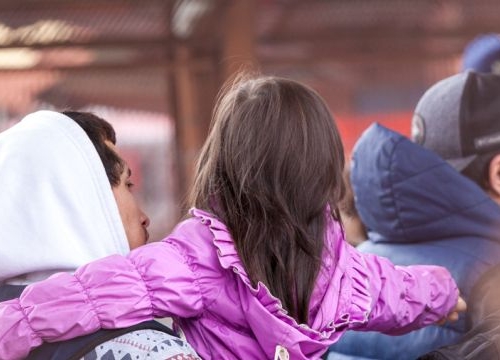Children in International Migration: Celebrating 5 Years of Joint Action by Two UN Treaty Bodies
Event


Mirek Pruchnicki
In 2017, the United Nations (UN) Committee on the Protection of the Rights of Migrant Workers (CMW Committee) and the UN Committee on the Rights of the Child (CRC) jointly developed General Comment No 3 (22) on ‘the human rights of children in the context of international migration: General Principles’ and General Comment No 4 (23) on ‘States obligations regarding the human rights of children in the context of international migration in countries of origin, transit, destination and return’.
On the occasion of the fifth anniversary of these two General Comments, this side event organized in cooperation with the CMW Committee and the CRC will commemorate this joint action. This collaboration is an excellent example of cooperation between committees and illustrates the cross-committee and systemic approach recently promoted within the 2020 Treaty Body Review process at the UN General Assembly.
Stakeholders will be invited to comment on the usefulness and practical results of this common document.
This event will also be an opportunity for the two Committees to issue a public statement reminding states of their obligations under the recommendations of the two joint General Comments.
Welcoming Remarks
- Felix Kirchmeier, Executive Director, Geneva Human Rights Platform
Introductory Remarks
- Edgar Corzo Sosa, Chair of the Committee on the Protection of the Rights of Migrant Workers
- Mikiko Otani, Chair of the Committee on the Rights of the Child
Statements
- Federico Villegas, Ambassador and Permanent Representative of the Argentine Republic, Chair of the UN Human Rights Council
- Mahamane Cisse-Gouro, Director, Office of the UN High Commissioner for Human Rights Human Rights Council and Treaty Mechanisms Division
- Vassily Yuzhanin, Chief, International Migration Law Unit, International Organization for Migration
- Carolina Hernandez, Head, Office of the UN High Commissioner for Human Rights Migration Team
- Verena Knaus, Global Head Migration, UNICEF
- Daniela Reale, Save The Children
- Alvaro Enrique Ayala Melendez, Ambassador and Chargé d'affaires a.i., Permanent Mission of Colombia to the UN in Geneva
- Felipe González Morales, UN Special Rapporteur on the Human Rights of Migrants (video message)
- Michele Le Voy, Director, Platform for Internal Cooperation and Undocumented Migrants (PICUM/NGO)
Closing Remarks
- Edgar Corzo Sosa, Chair of the Committee on the Protection of the Rights of Migrant Workers
- Mikiko Otani, Chair of the Committee on the Rights of the Child,
- Felix Kirchmeier, Executive Director, Geneva Human Rights Platform
Reception
This event will be followed by a reception.









